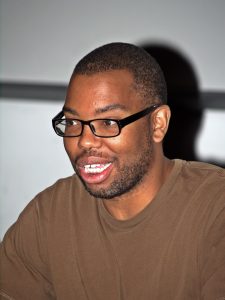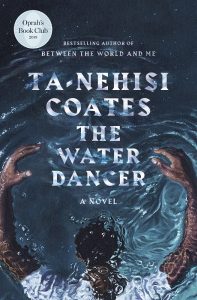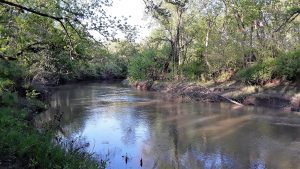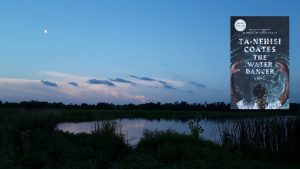A Confluence of Writing on Rivers -- Part 3 in a Series About Writing with River Themes

 Ta-Nehisi Coates’s first work of fiction, The Water Dancer, opens a new window, is as beautiful and provocative as his acclaimed memoirs, essays, and comics. When I finished reading this book I returned to the beginning and I am compelled to linger. I am grateful for this fantastic historical adventure because even though it is rooted in the racist caste system that built this country there is powerful hope for the characters to reach freedom. Hiram Walker narrates his experiences as a gifted, yet “tasked” (enslaved) young man of the Lockless Plantation. And magical realism is evident within the first pages as Hiram survives an accident in the icy Goose River by means of vivid memories of his mother and other ancestors. The story lyrically sings in memories and heartfelt turmoil of separated families. Coates is a skilled storyteller and there are several unexpected twists throughout the telling! He also honors the real heroines and heroes of the Underground Railroad, most notably Harriet Tubman. And the remembering feels like restorative justice.
Ta-Nehisi Coates’s first work of fiction, The Water Dancer, opens a new window, is as beautiful and provocative as his acclaimed memoirs, essays, and comics. When I finished reading this book I returned to the beginning and I am compelled to linger. I am grateful for this fantastic historical adventure because even though it is rooted in the racist caste system that built this country there is powerful hope for the characters to reach freedom. Hiram Walker narrates his experiences as a gifted, yet “tasked” (enslaved) young man of the Lockless Plantation. And magical realism is evident within the first pages as Hiram survives an accident in the icy Goose River by means of vivid memories of his mother and other ancestors. The story lyrically sings in memories and heartfelt turmoil of separated families. Coates is a skilled storyteller and there are several unexpected twists throughout the telling! He also honors the real heroines and heroes of the Underground Railroad, most notably Harriet Tubman. And the remembering feels like restorative justice.

In case you haven’t heard, Kansas is celebrating September as Underground Railroad Month! Peruse a list of resources about the Underground Railroad, opens a new window, featuring local sites and books of historical fiction & nonfiction for adults and kids created by Leah of the Book Squad and Ruby of Info Services.

And thinking of local places, I am inspired to acknowledge traditional Native lands. In our region near the Kansas (Kaw) and Wakarusa Rivers, I want to honor the Dakota, Delaware (Lenape), Kansa (Kaw), Kickapoo, Lakota, Osage, Sac and Fox, Shawnee, and actually hundreds more tribes who find connection here with Haskell Indian Nations University. As Ken Lassman (author of the book Wild Douglas County, opens a new window, and blog Kaw Valley Almanac, opens a new window) noted: “Haskell Indian Nations University is the United Nations of tribes, with members of hundreds of tribes coming here over the lifetime of its existence.”
Rivers represent literal and symbolic change and transformation. I hope these reflections will provide us with strength to stand up to injustice and boldly create equity everywhere we have influence. In future musings I’ll share more magical river-connected stories, naturalists' explorations, memoirs of kayaking adventures and more via this series: A Confluence of Writing on Rivers!
Read part 1 of A Confluence of Writing on Rivers: Of Poetry and Rivers: Langston Hughes, Denise Low, and Katherena Vermette, opens a new window
Acknowledgements
Cheers to River Network, opens a new window and their apropos efforts for equity, diversity, inclusion, and racial justice! And thanks to Margo Farnsworth for introducing me to this organization.
Gratitude to the Kansas City Conservation Equity Network, opens a new window! A network that connects, inspires, and empowers the conservation community in the Kansas City region to increase diversity, equity, and inclusion in all our work to benefit communities and achieve conservation goals.
Heartfelt recognition to Friends of the Kaw, opens a new window for great stewardship, actively practicing equity, diversity, and inclusion, and their recent journey of the entire Kansas River!
Appreciation to Denise Low, opens a new window for helping me acknowledge each Native American tribe by their preferred name.
Cover image credits: Book cover from publisher One World. Wakarusa Wetlands Moon photo by Shirley Braunlich. 
Photo of Ta-Nehisi Coates by David Shankbone, opens a new window Creative Commons Attribution 3.0 Unported license, opens a new window.
- Shirley Braunlich is a Readers' Services Assistant at Lawrence Public Library.
The Water Dancer, opens a new window
We Were Eight Years in Power, opens a new window
Between the World and Me, opens a new window


Add a comment to: The Water Dancer Lyrically Connects the River With Memory